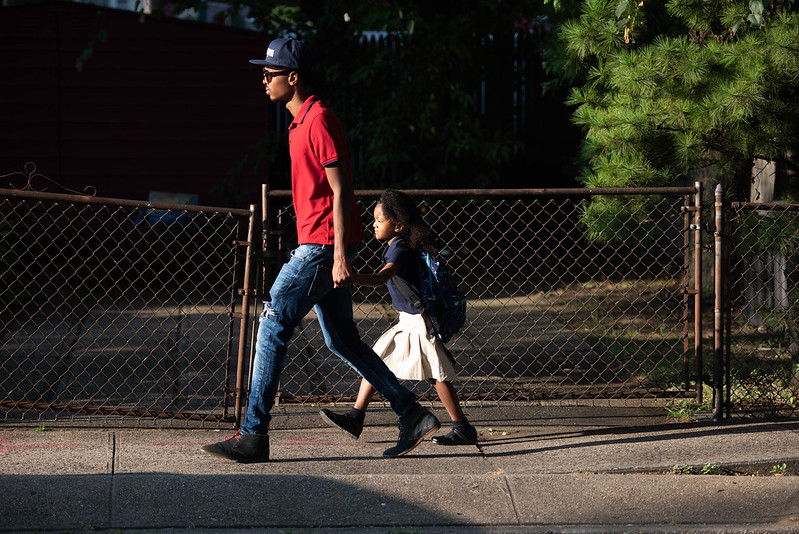
School will be either blended or all-remote (photo: Michael Appleton/Mayor's Office )
The City prudently delayed the reopening of schools this week, meaning all students will learn from home until at least September 21. Meanwhile, nearly 400,000 public school families had already opted for their children to learn fully remotely indefinitely — continuing a dramatic shift in the way we educate our kids. All of our 1.1 million public school students will rely on remote learning this school year, either entirely or significantly.
But the learn-from-home experience for students can be very different depending on wealth and income, exposing yet another painful consequence of our city’s systemic inequality. This is also just the latest hardship endured along racial lines for families dealing with the COVID-19 crisis; people of color make up more than four-fifths of those opting for remote learning as of August 28. Many of these families cannot risk infection because of pre-existing health issues.
And those families are also far less likely to have access to adequate technology and Internet service. Nearly half of households living in poverty do not have broadband Internet. The vast majority of those families are Black and brown. Make no mistake, unless access improves rapidly, their kids will not receive a quality education. The effects of that could permanently impair those students’ ability to succeed.
It is the fundamental responsibility of government to protect the people it represents from harm. Part of that responsibility is guaranteeing the right to a quality education. In this new paradigm, that means the digital divide is no longer merely an example of inequality — it is an example of injustice. Just like all New Yorkers have a right to healthy food, clean water, and safe shelter, they have a right to quality information access.
If we start with that truth, current efforts to provide broadband access, computers, and other equipment to millions of New Yorkers will have to be accelerated. That means a significant investment beyond what is already being spent.
But government budgets are devastated because of the pandemic-created economic crisis. Even if we prioritize spending on remote learning and this sea change in education, new dollars will have to come from somewhere.
Local Internet providers have pledged to help. But they have also been slow to close the digital gap. These utilities operate at the pleasure of New Yorkers, who grant them their franchises. Verizon pledged to wire every building with FiOS in 2008 when the City signed a provider deal. It has not. It is time to motivate Verizon with a deadline. If the company does not provide access for every public school family that needs broadband by the end of the calendar year, we should go shopping for a new provider.
The tech companies that make laptops, phones, and tablets also need to do more. The City spent $269 million on 300,000 iPads this year. That is nearly $900 a device with three months of Internet service. In other words, we are paying near retail to buy from behemoths like Google, Apple, and Microsoft, which have seen their market value explode during this crisis. They should be ashamed and offer us much larger discounts going forward.
Finally, tech companies like Facebook and Amazon, as well as those listed above, are making billions off of our personal data. By requiring those companies to report their sales of commercialized data, and applying a modest transaction fee, we can raise enough new revenue to ensure every New Yorker’s right to information and the means to access it.
State Senator Andrew Gounardes and I are working on a legislative framework to do just that. Once ready, the State and City should move swiftly to approve it.
Consider the success of our levy on the world’s previous most-lucrative commodity, oil. Gas taxes paid for an interstate highway system and much of our local infrastructure — and the cheap transportation of goods that came with it. But that was paid by consumers. This time around, let us make sure that the corporations are paying their due.
Failure to take these steps will certainly result in lower test scores and lost potential for our children, especially the most vulnerable. Even more unforgivably, it will assure an even deeper racial and economic divide than the one we have now. School is starting. We must answer the bell.
***
Eric Adams is the Brooklyn borough president. On Twitter @BKBoroHall.
***
Have an op-ed idea or submission for Gotham Gazette? Email This email address is being protected from spambots. You need JavaScript enabled to view it.




